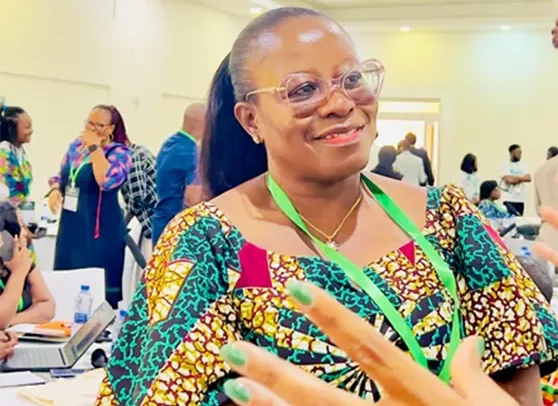Dr. Audrey Smock Amoah
The Director-General of the National Development Planning Commission (NDPC), Dr. Audrey Smock Amoah, has called for equitable and sustainable management of Africa’s natural resources to promote shared prosperity and social justice.
Speaking at the Equity in Extraction Conference 2025 in Accra yesterday, organised by the Integrated Social Development Centre (ISODEC) in collaboration with the Ford Foundation and International Development Economics Associates (IDEAs), Dr. Amoah stressed that “equity in extraction is not just an economic goal but a moral and development imperative.”
She said Africa’s vast mineral wealth, including gold, bauxite, lithium, cobalt, and nickel, must translate into tangible improvements in jobs, education, and infrastructure for local communities.
The conference drew participants from Sierra Leone, Liberia, Zimbabwe, Egypt, Sudan, Nigeria and Benin, and it was held under the theme “Equity in Extraction: Addressing Inequalities in Natural Resource Governance, Critical Minerals and Climate Change.”
Using the example of Ghana’s polluted River Pra, the NDPC boss warned that unregulated mining, weak governance, and short-term political interests have caused widespread environmental harm and social injustice.
Citing data from the African Development Bank and UNDP, Dr. Amoah noted that although Africa holds nearly 30 percent of the world’s mineral reserves, it remains one of the least industrialized regions.
According to her, only about 15 to 20 percent of mining revenues stay within local economies, leaving resource-rich communities among the poorest.
She therefore urged African governments to strengthen transparency, fair contracting, and community participation while promoting value addition, technology transfer, and regional cooperation to avoid remaining mere exporters of raw materials.
The Executive Director of IDEAs, Dr. Charles Abugre, echoed these concerns, urging policymakers to adopt a long-term, sovereign, and technologically driven approach to managing natural resources.
He warned that Africa’s extractive model, which is capital-intensive and externally controlled, continues to widen inequality and deepen poverty despite decades of mining.
“Our economies grow poorer even as extraction intensifies. Poverty is rising, inequality is worsening, and environmental degradation continues,” Dr. Abugre said.
He cautioned against “regulatory capture” by foreign corporations and urged governments to reclaim ownership and strategic control over resource exploitation.
Turning to the emerging critical minerals sector, he warned that Africa risks repeating the mistakes of the gold and diamond era if it fails to invest in research, technology, and industrial value chains. “We cannot afford to be price takers again in the global green transition,” he stressed, calling for patient, long-term planning to ensure minerals drive inclusive prosperity.
Delivering the conference’s welcome address, ISODEC Executive Director Sam Danso highlighted how poor governance and climate change reinforce inequality across resource-rich regions.
He noted that agricultural productivity in Africa has fallen by 34 percent since 1960 due to climate change, and the World Bank estimates that up to 35 million people in Sub-Saharan Africa could be pushed into poverty by 2025.
He added that adaptation costs in West Africa alone, he said, could reach US$50 billion annually by 2050.
Mr. Danso called for transparency, accountability, and fair benefit-sharing in extractive governance.
The three-day conference aims to produce actionable policy recommendations for governments, industries, and civil society, ensuring Africa’s resource wealth becomes a foundation for equity, climate resilience, and inclusive development rather than exploitation.
By Ernest Kofi Adu


